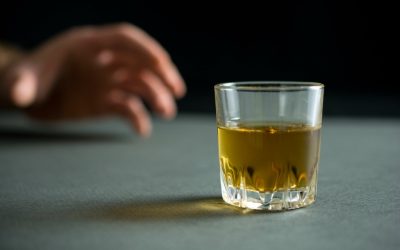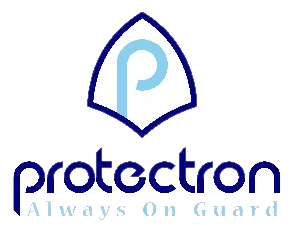Most adults need 7 to 9 hours a night, and teenagers usually need a full 9 hours. Luckily, there are things you can alcohol rehab do at home to reduce your daytime sleepiness. Drinking small sips of clear liquids periodically can help if you’re feeling nauseous or keep throwing up.
Scan the QR code to get started!
Sober nights unfold like a time-lapse flower blooming, revealing the vibrant colors of restorative sleep long masked by alcohol’s dulling effects. This poetic imagery captures the transformative journey many experience when they decide to quit drinking alcohol. The path to better sleep after giving up alcohol is not always smooth, but it is undoubtedly rewarding. Managing insomnia at our detox center requires a combination of healthy sleep habits, http://www.shahhospital.co.in/index.php/2021/08/05/what-binge-drinking-does-to-your-brain-and-body/ stress-reducing techniques, and, when appropriate, medical intervention. Establishing a regular sleep schedule, creating a calming bedtime routine, and avoiding stimulants like caffeine can help. In more severe cases, healthcare professionals may provide non-addictive medications or therapies to support restful sleep and promote overall recovery.
Factors That Influence Withdrawal Insomnia Severity
Medical detox programs provide round-the-clock monitoring and support for withdrawal symptoms, including sleep disturbances. The struggle with withdrawal insomnia can feel like an eternity—but rest assured, it’s not forever. The duration varies, and depends on factors like the severity of dependence, your metabolism, and underlying health conditions. In general, symptoms are the worst in the first few days of alcohol detox,3 and usually improve over the course of the next few weeks.
Social anxiety
Try to get your most demanding tasks or challenges finished earlier in the day and not within a couple of hours of bedtime. Get your bedroom comfortable and ready for relaxation by dimming the lights, lowering the temperature if possible, and lowering the noise. Typically, adults need about seven to nine hours of sleep per night. This number isn’t the same for everyone and can vary depending on a number of factors. More important than the number of hours you sleep is the quality of your sleep each night. One way to keep coffee from ruining your sleep is to avoid drinking it in the evening.

These actions help to calm your body and mind, which in turn will make it easier for you to fall asleep. By relaxing in this way, ideally at nighttime, you will help your body fall back into its natural sleep patterns. Surf City Detox also offers holistic therapy that supports recovery by addressing the mind, body, and spirit.
- Meal delivery services can also be a good option if you don’t have time to cook healthy meals.
- Instead, remind yourself you can do things differently next time.
- Herbal remedies such as chamomile or valerian can also help you relax and reduce the effects of alcohol.
- Research has linked the development of depression symptoms in adolescents to regular or heavy alcohol use.

It can also develop into a more severe alcohol brain fog, especially if you consume alcoholic drinks more often than usual. While alcohol may initially induce drowsiness, it has a deceptive relationship with sleep regulation. Alcohol acts as a central nervous system depressant, slowing down brain activity and creating a feeling of drowsiness. In this article, we will explore effective strategies to cope with alcohol withdrawal insomnia, offering support and guidance for those navigating this difficult journey towards sobriety.
Once your brain and body have gotten used to the regular presence of alcohol, you’re alcohol-dependent. And once dependence sets in, suddenly stopping drinking can cause a number of reactions. For most people, these include anxiety, agitation, and difficulty falling or staying asleep.
Have Chamomile to Reduce ‘Hangxiety’
You may feel much less alert, less able to remember things, and less able to make logical decisions when you’re hungover. A 2017 study found that these aspects of cognitive function were all highly impacted during a period of hangover symptoms. The study also suggested that heart rate increases as you drink more alcohol, and these increases can raise your risk of arrhythmia, an irregular heartbeat. Most of the time you just need to drink water, eat some food, and walk it off. But if you’ve had too much to drink, you may be harming your body and need to see your doctor for treatment.
- Long-term alcohol use creates even more significant sleep disruptions.
- Alcohol has a sedative effect that can make it difficult to stay asleep, and the disruption of your sleep can be more pronounced the closer to bedtime you drink.
- For example, if you can’t nap after eating because you’re at work, try to extend your nightly sleep.
- Blood alcohol level is measured by the weight of alcohol in a certain volume of blood.
- The cognitive dysfunction can impact your life negatively, affecting your career, relationships, and overall motivation.
How to Get Quality Sleep After Drinking Alcohol
You can find a program that suits your needs and preferences. Alcohol use disorder is a serious condition that can lead to brain fog and other cognitive impairments. Spending time in nature has been shown to have many benefits for brain health. Another great way to get some sunlight is to go for a walk outside. Walking is an excellent form of exercise that has many benefits for brain health. In fact, research has shown that people who are exposed to more sunlight have a lower risk of developing depression.

Craving Sugar After Quitting Drinking? Here’s Why – And How to Cope
Getting adequate rest helps optimize our cell and organ function to detox from alcohol effectively and efficiently. It also supports cell and tissue repair, which can insomnia after stopping drinking be essential in preventing and minimizing long-term health consequences caused by alcohol. Neurologically, alcohol stimulates our GABA receptors, which produce feelings of pleasure and relaxation.
